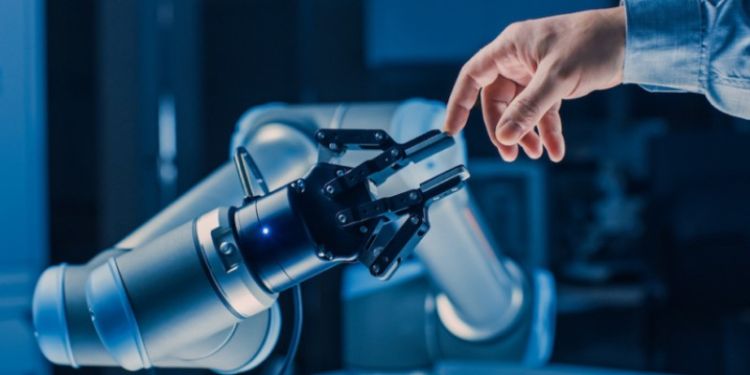University of Leeds lead human-robot interaction control strategy project

Dr. Zhenhong Li, research fellow from the School of Electronic and Electrical Engineering is leading FREEpHRI, a project that aims to improve human-robot interaction.
Funded by an Engineering and Physical Sciences Research Council (EPSRC) Fellowship, the Flexible, Robust and Efficient Physical Human-Robot Interaction (FREEpHRI) project aims to develop a human-robot interaction control strategy enabling robots to recognise human behaviour and adapt in real-time.
Dr. Zhenhong Li, research fellow at the School of Electronic and Electrical Engineering who is leading the research told The Engineer, “In recent decades, robots have demonstrated their superiority in increasing productivity, efficiency and consistency in the manufacturing of products. Now, we aim to put humans back into the development and production process. By taking the advantage of robots’ precision and humans’ creativity, we may create a better system that can provide individualised products and services.”
The ambition of this fellowship will focus on enabling robots to real-time estimate human behaviours, intelligently detect the changes of human behaviours, automatically adjust the relationship between the human and the robot, and provide natural interaction behaviours.
By taking the advantage of robots’ precision and humans’ creativity, we may create a better system that can provide individualised products and services.
Dr Li explains, “I will pursue this goal by first developing a flexible and robust pHRI control strategy. The control strategy uses a two-player differential game to model human-robot interaction behaviours, and learning techniques to compensate the effects of unknown dynamics and external disturbances. A cost function implying motor capability will be assigned to the human partner, and the robot will adjust its role (collaborator or competitor) according to the real-time estimation of the human cost function.
Furthermore, the team and myself will work on introducing an efficient self-triggered role adaption mechanism. The triggering mechanism uses the performance of the human-robot system and the estimated human behaviour to detect the role changes of the human, and triggers the robot to change its role when necessary.” Reliability and functionality of the proposed techniques will then be evaluated through application in physical robot-assisted rehabilitation, with the techniques being used to achieve typical training strategies initially in lab settings, then in hospital settings supported by the Leeds Teaching Hospital.
The technologies developed in this fellowship will provide a general framework for designing an interactive robot control system. The objectives and milestones will be delivered collaboratively with partners from the University of Leeds, the University of the West of England Bristol, the University of Manchester, Leeds Teaching Hospitals NHS Trust, Devices for Dignity, YIRUIDE Medical and DIH/Hocoma.
Find out more
Image: Adobe Stock
Discover more about research and innovation that is happening in the School of Electronic and Electrical Engineering.




